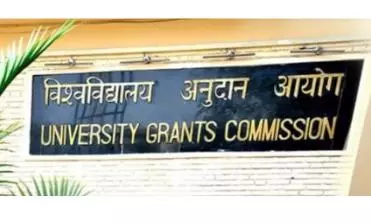UGC Nod Likely for Overseas Post-Doctoral Experience for Promotions in State Varsities

Hyderabad: The University Grants Commission (UGC) is actively considering recognising overseas post-doctoral experience as a key criterion for faculty promotions in state universities, sources said, following representations from teachers’ bodies across the country.
Once formalised, the decision can strengthen international research exposure within the domestic academic landscape, bringing state universities in line with premier institutions like IITs, NITs and central universities, which acknowledge foreign post-doctoral stints as being invaluable.
State universities have long sought parity with their centrally-funded counterparts, arguing that excluding international research exposure in promotion hampered the overall development of their faculty and hinders collaborative growth.
One of the key proponents of this change is the Akhil Bharatiya Rashtriya Shaikshik Mahasangh (ABRSM) Telangana, which recently submitted a detailed appeal to the UGC.
Speaking on behalf of numerous affected faculty members, ABRSM representatives highlighted the potential benefits of including overseas research experience as promotion criteria, saying it could revitalise research activities, attract memorandums of understanding (MoUs) with international institutions, secure more funding, and boost projects.
“Such steps could lead to significant improvement in the NIRF (National Institutional Ranking Framework) ranking of state universities,” said an ABRSM member.
However, concerns remain about the equitable implementation of such a policy.
Nagaraju, state secretary of the Students’ Federation of India (SFI), voiced apprehensions about the lack of access to overseas post-doctoral opportunities for many faculty members due to socio-economic constraints.
“Not many faculty members are able to pursue post-doctoral studies abroad in the absence of state support, such as fellowships. Only a few elite sections within academia, particularly in state universities, can afford such opportunities. This would adversely affect the promotion prospects of committed teachers from poor and marginalised backgrounds,” Nagaraju explained.

